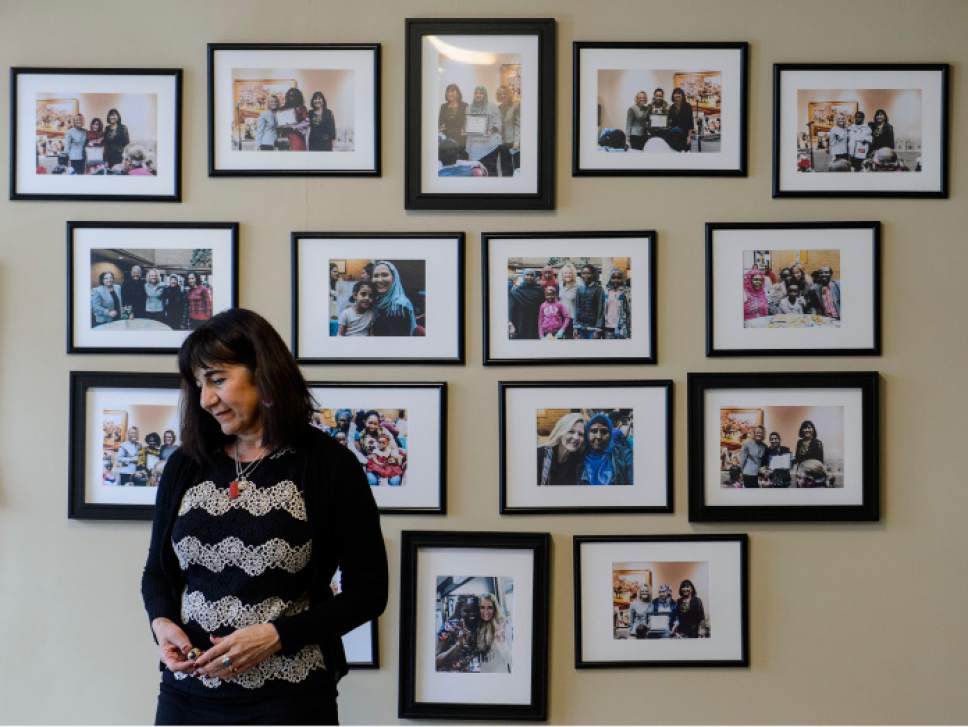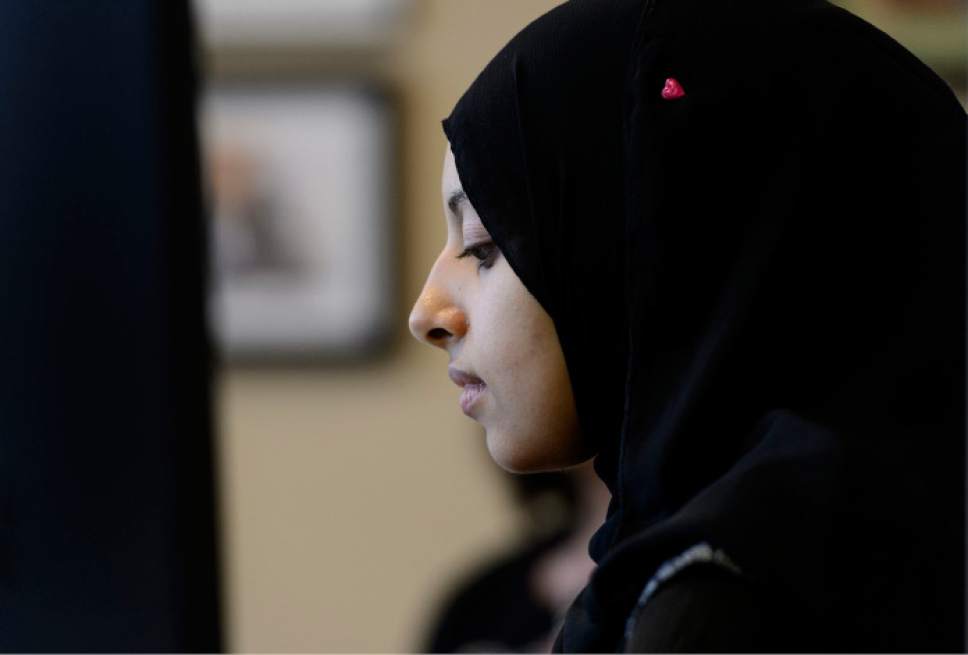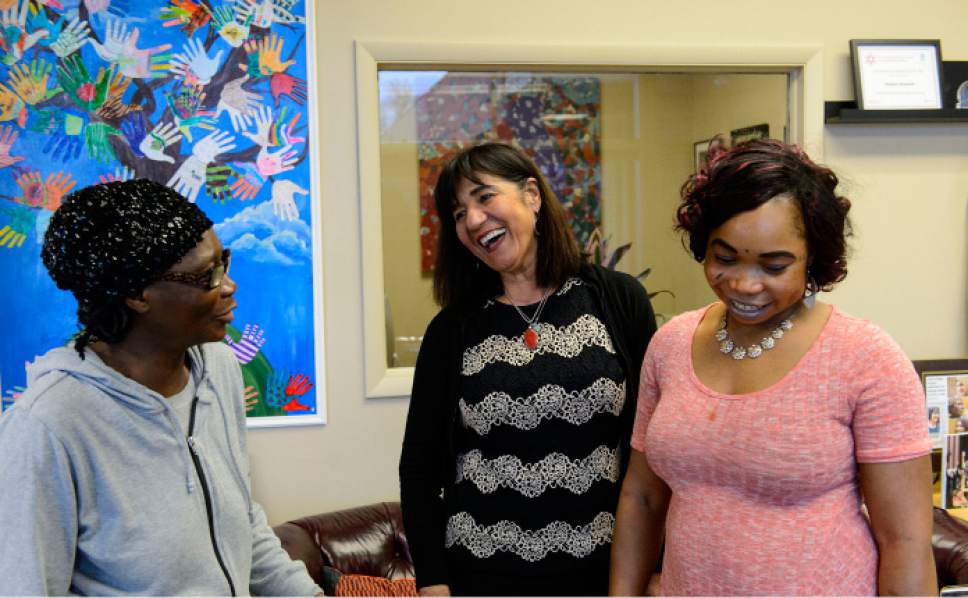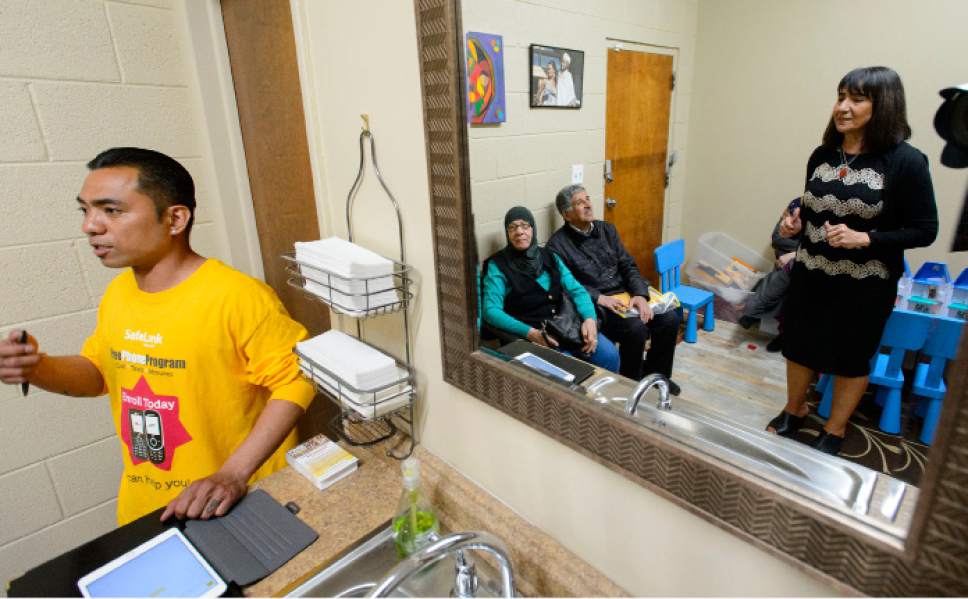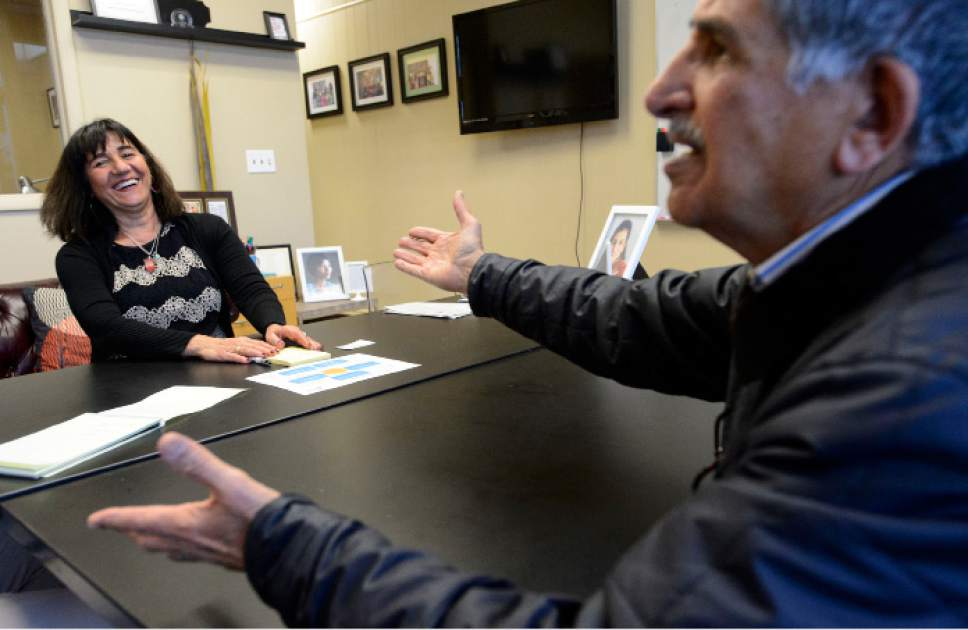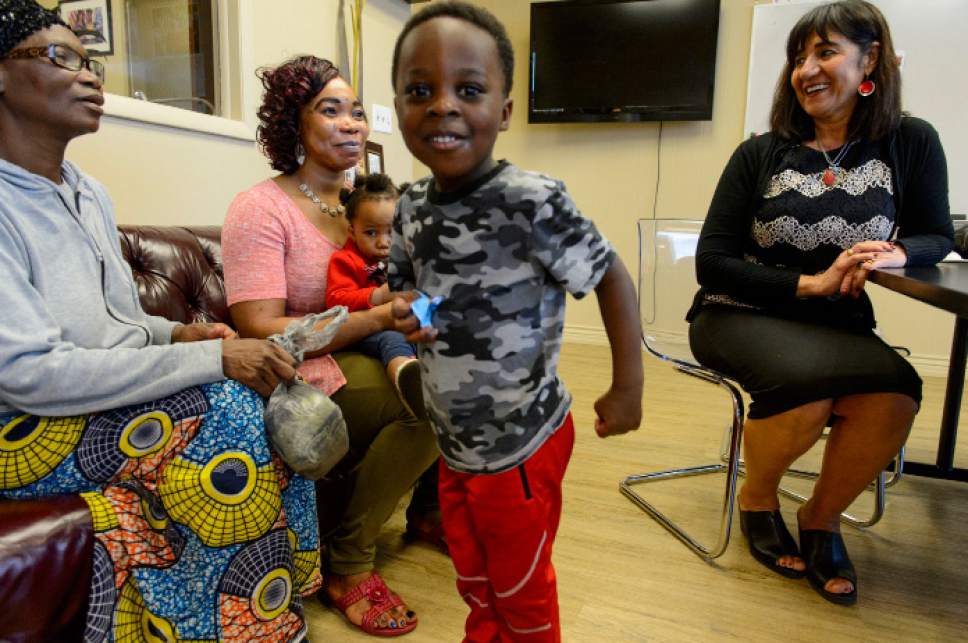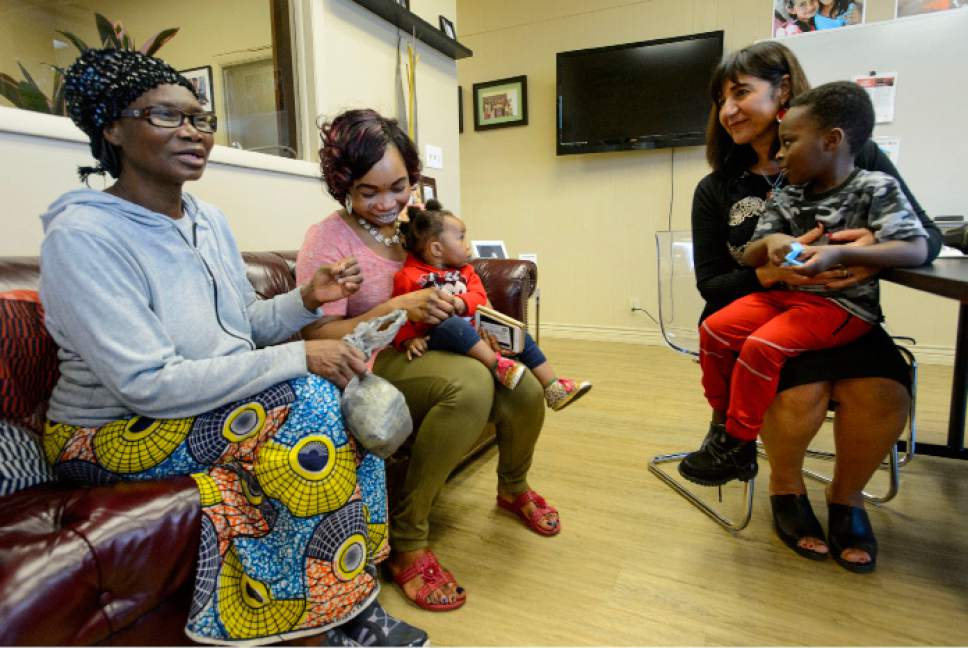This is an archived article that was published on sltrib.com in 2017, and information in the article may be outdated. It is provided only for personal research purposes and may not be reprinted.
Coming to America as a refugee is no easy proposition.
How do you get a telephone?
How do you get to the doctor?
What does that letter say that came in the mail?
What's that stuff in the box marked "cereal" and how do you prepare it?
Language, of course, is the chief barrier to leading a life in a new culture. And then comes finding a job.
Taleb Ahmed Mohammed, 82, and his wife, Khawla Waheeb Salman, came by the non-profit Women of the World one afternoon last week to see if they could get a cell phone. The couple immigrated as refugees eight years ago from Iraq to escape the deadly violence there.
"It was very hard for us to leave," said Mohammed in broken English of the couple's long-time home in Baghdad. "lt was frightening for us because we didn't speak the language and didn't know about the U.S."
The couple fled to Jordan and were later assigned to the United States by the U.N. High Commissioner of Refugees.
Most refugees do not want to come to the United States, said Samira Harnish, who founded Women of the World in 2010 to help immigrants assimilate. Most know nothing of this country or its culture, she explained.
"They come here — they've lost everything," Harnish said. "They have to start from zero."
Refugees who are resettled through Catholic Community Services or the International Rescue Committee get three to six months of assistance and then must provide for themselves. Because of their age, Mohammed and Salman receive some benefits through Social Security.
Because their English skills are limited, the couple initially brought envelopes that contained such things as utility bills to Harnish and volunteers at the organization to discern what was inside. It's just one of innumerable hurdles, large and small, that immigrants face on a daily basis.
Harnish and her organization seek to help refugees — most of whom are women and children — to not only assimilate into the American culture, but to succeed and make their voices heard.
For the Iraqi native and engineer, who earned degrees at Utah State and Boise State universities, Women of the World fulfills a life-long dream.
"From 9 years old, I wanted to give women an independent voice," Harnish said. "But when I came to America, it was hard to find my way."
She had an attractive position at the high-tech company, Micron, but in 2008 when many Iraqis began to arrive in Utah, she decided to dedicate her life to helping refugee women. Within two years, she established Women of the World.
The operation depends on volunteers, some of whom put in as little as an hour or two per week.
Refugees stream by the small office at 3347 S. Main St. seeking assistance on all kinds of challenges.
Mohammed gushes when asked about Harnish. "We've known Samira for eight years. She has helped us with everything," he said. "She is great. She is my daughter."
Mohammed and Salman have some connection to the refugee community through their mosque. But they are, according to Harnish, "Jack Muslims," and don't attend often. Also, they don't know some members of the mosque very well and trust can be an issue because of the horrendous things that happened in their country.
Among the challenges refugees face, Harnish explained, are isolation and depression.
Takwa Sharif is 26. She graduated from East High School and holds a master's degree in English from the University of Utah. She immigrated from Somalia as a refugee with her parents when she was 5. Most of the time, she thinks of herself as an average American.
This week, she began working as a part-time administrative assistant at Women of the World.
She wears a hijab — a Muslim headscarf — and sometimes is the target of insults.
It was particularly bad after 9/11, when she was only 10. "People would swear at me and say go back to where you come from."
The atmosphere slowly improved, but since the onset of Donald Trump's presidential campaign and then his election, the rude behavior and insults are on the rise, she said.
Recently, one man hurled insults at her and her mother, saying, "If they want to dress like that, they should go back to where they came from," Sharif said.
Although Sharif speaks without an accent, she says her parents still struggle with English — an issue that makes assimilation difficult. But unlike Mohammed and Salman, Sharif said her parents are very involved in their mosque and the Somali immigrant community. It provides friendship and a sense of belonging that helps keep at bay the sense of isolation and the burden of depression.
In contrast, their daughter is fully assimilated and has friends from all spectrums of this culture — her culture.
To volunteer or donate to Women of the World, visit its website at http://www.womenofworld.org.


